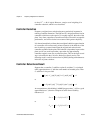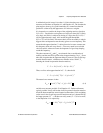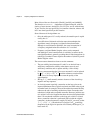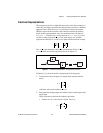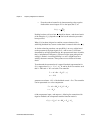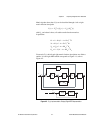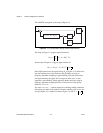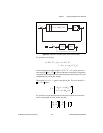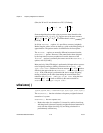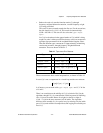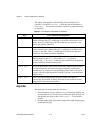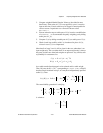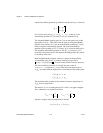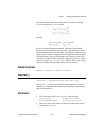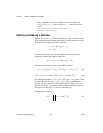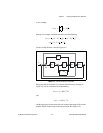
Chapter 4 Frequency-Weighted Error Reduction
Xmath Model Reduction Module 4-10 ni.com
(Here, the W
i
and V
i
are submatrices of W,V.) Evidently,
Some manipulation shows that trying to preserve these identities after
approximation of D
L
, N
L
or N
R
, D
R
suggests use of the error measures
and . For further details, refer to
[AnM89]
and
[LAL90].
In all four
fracred( ) options, it is possible to construct (weighted)
Hankel singular values, and to use them as a guide to the likely quality of
approximation. The patterns tend to be different for the four options.
The
fracred( ) options are normally different in outcome from the
wtbalance( ) options. However, if the controller has been designed
by the loop transfer recovery method and is stable, then one of the
fracred( ) options is essentially the same as one of the wtbalance( )
options, refer to [LiA90].
More precisely, if the LTR design is performed with input noise or process
noise weighting tending to infinity, reduction with
fracred( ) and
type="left stab", which uses the error measure , leads to
effectively the same reduction as
wtbalance () with the type="input
stab"
. If the LTR design is performed with state or output weighting
tending to infinity (in the index determining the state feedback law),
reduction with
fracred( ) and type="right stab" using the error
measure leads to effectively the same reduction as
wtbalance( ) with type="output stab".
wtbalance( )
[SysCR,SysCLR,HSV]
=
wtbalance(Sys,SysC,type,{nscr,SysV})
The wtbalance( ) function calculates a frequency weighted balanced
truncation of a system.
wtbalance( ) has two separate uses:
• Reduce the order of a controller C(s) located in a stable closed-loop,
with the plant P(s) known. Frequency-weighted balanced truncation is
used, with the weights involving P(s) and being calculated in a
predominantly standard way.
D
L
N
L
VI=
and
W
N
R
D
R
I=
WG G
r
–()
∞
HH
r
–()V
∞
HH
r
–()V
WG G
r
–()
∞



